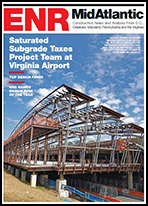Researchers at Penn State University say analysis of data collected during search and rescue efforts at the World Trade Center disaster site show that microphones lowered or thrown into collapsed building wreckage to listen for survivors are effective even when surface noise levels are high.
"In conventional survivor searches, noise-generating activities at the surface must be stopped while listening for survivors," says researcher Thomas B. Gabrielson. He found, however, that accoustic searches can be conducted effectively without interfering with surface operations.
The research team, which has support from the Office of Naval Research, has since developed small, expendable wireless microphones in hardened packages that can be thrown into areas too dangerous for people to enter. For more information see www.psu.edu/ur/research/.


Post a comment to this article
Report Abusive Comment